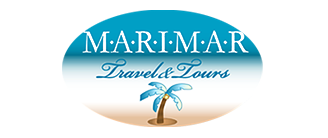Got Questions? We Have Answers!
You cannot use US money or checks in Cuba. While MasterCard and Amex have said that they will soon start to accept cards from U.S. banks, Cuba’s infrastructure is unreliable and the transactions may not go through. We recommend that you bring enough cash for your entire trip. When you arrive in Cuba, you can exchange U.S. dollars or other currency at the airport, hotel or bank for CUC’s. or Cuban Convertible Pesos. For Travelers Checks, you must go to the bank and sign the check in front of the teller. Your signature must exactly match what is on your passport or you will not be able to cash them. You can exchange your CUC’s back to dollars at the hotel before you leave.
You can use a personal computer or tablet in Cuba but wireless access costs more that renting one of their computers. Cuban-born citizens need to register their tablets and laptops when they enter Cuba. If they leave them behind for friends and relatives, they will have to pay taxes when they leave the country and the taxes exceed the cost of the devices.
Travelers have a special currency called the Cuban Convertible Peso, and since November 8, 2004, the CUC must be used for all purchases of goods and services. While it is most convenient to exchange your money for CUCs at your hotel, you can also exchange dollars at the airport, bank and CADECA bureaus. As of November 14, 2004, all exchange between CUC and USD is subject to a 10% Cuban tax on top of all exchange rates. You can bring Canadian currency or Euros to exchange for CUC’s for a smaller exchange fee.
This is the official national currency and the money that Cuban citizens are paid in for their work. The exchange rate is approximately 24 Cuban pesos for one CUC.
Cuba requires a departure tax from each individual ($25 CUC, apx. $25). Effective April 1, 2015, this will be collected by the Charter companies and included in the cost of your airline ticket.
Cuba is very conscientious in their treatment of people with disabilities; however, the amenities have not caught up with their attitude. The streets are not easy to navigate and the transportation is not geared toward the disabled. There are a few hotels that are equipped for people with disabilities, and Marimar can help you locate the facility to fit your needs
Cuba has a zero tolerance policy with regard to illegal drugs, and the penalties for possession, use, or trafficking are severe. Persons violating Cuba’s laws, even unknowingly, may be expelled, arrested or imprisoned. Travelers who have apparently brought in a personal amount of marijuana or other drugs have been in prison for years and have experienced long legal proceedings. Convicted offenders can expect a long jail sentence (as much as 30 years) and a heavy fine.
There are two types of electricity: 110V and 220V. The U.S. uses 110V and Cuba uses 220V. Although your hotel may have 110V in the rooms, you should bring a 110V/220V converter, along with a surge protector and a 3-prong to 2-prong adapter.
Please contact the U.S. Interests Section in Havana at (537) 839-4100 during business hours 8:00 a.m. to 4:30 p.m. (closed on U.S. and Cuban Holidays). After hours, call the main switchboard at (537) 831-4100 and dial 1 to speak with the emergency operator
Cuba is a poor nation, and donations of clothes, toys and toiletries are very much appreciated. These items can be donated during your stay; however, you should not feel obligated to bring anything. Please be aware that Customs may confiscate these items.
It is illegal for U.S. citizens to travel to Cuba without the proper license whether it is from the United States or from another country. Those traveling illegally are subject to a fine and do not have the option of seeking help from the U.S. Interests Section in times of emergency.
